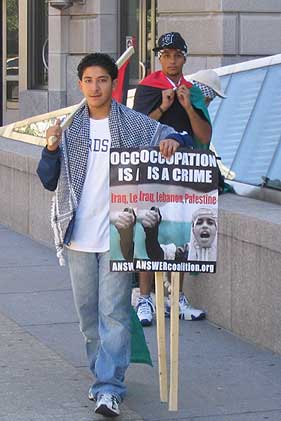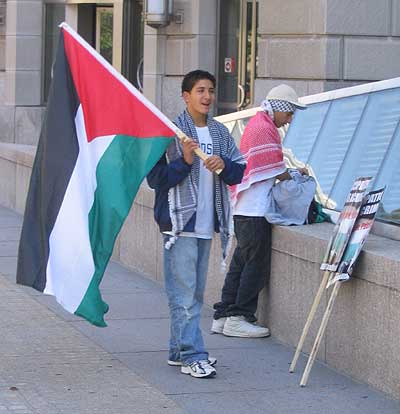From Power Line:
The bottom line is, Hezbollah went the distance and was still standing–firing rockets–at the end. It emerges with its stature enhanced.
That’s an understatement — Hezbollah has just won its brief war with Israel. To the Arab mind, if a challenger tries to displace the ruler, and the ruler remains in power, the ruler is the winner. That’s why Saddam claimed to be the winner in the first Gulf War, because he remained president of Iraq even though his military forces were demolished. In turn, the challenger might gain in status if he lives to fight another day, but if he is utterly defeated, he is despised and forgotten.
By that logic, Hezbollah was the power in southern Lebanon, and Israel tried to displace it. Hezbollah is still in power, ergo they won. As the challenger, Israel is now despised because it is seen as the greater power in the region — yet it did not use its full force to defeat Hezbollah. Now other Arab (and Persian) rulers will seek to take advantage of this victory.
You think this is “ethnic stereotyping”? I tell you that this description can be confirmed by anyone who has studied Middle Eastern politics without ideological blinders. Displays of compassion or restraint are interpreted as weakness. Shows of strength, even when they are untethered to anything resembling morality, are always respected even coming from hated enemies.
The State of Israel has known this since its inception, and has chosen its tactics accordingly. That explains why in the Palestinian areas under its control, Israel has chosen to treat the Palestinians with high-handed disdain, giving them daily, visible reminders of their material inferiority and powerlessness. This fuels the nihilistic rage of the Palestinians, who strike back with increasing desperation; from this shame, suicide bombers are born.
Looking at it from the other side, though, what choice does Israel have? “Treat the Palestinians with love and respect,” you reply. That will only invite more attacks, as when the odious murderer Arafat launched a suicide-bombing campaign in 2000 after Israel offered 97% of the Palestinian territories in exchange for peace. In this decade, Israel evacuated southern Lebanon and the Gaza Strip, and in return it got rockets launched against its population centers. What would happen if it gave up the Golan Heights and the West Bank? Likely it would get more of the same, and twice as bad.
I sympathize with the Israelis’ plight, but ultimately, agreeing to this cease-fire does not mean “the fighting will stop.” It will simply postpone the fighting until a later time, when Hezbollah has replenished its weapons and men, and is newly motivated to spill fresh Jewish blood. The State of Israel will have two choices: 1) suffer another defeat, and concede its eventual dissolution at the hands; or 2) respond with devastating force. This will almost certainly kill far more people tomorrow, innocent and otherwise, than defeating Hezbollah today.
That is what Michael Ledeen was getting at in his latest NRO column: “If we do not do the logical and sensible things, if we do not deploy the massive political weapons at our disposal, we will end by doing terrible things.” Hitler could have been stopped when he invaded the Rhineland — his generals agreed that if the French showed the slightest resistance, they would turn their troops around and depose the government. But France did nothing, and a war that could have been stopped with a few minor skirmishes ended with the wholesale destruction of entire cities.
False peace is the hallmark of our time, and our descendants will rightly despise us for believing in it — assuming they will still teach history in their schools, along with memorizing the Koran.


